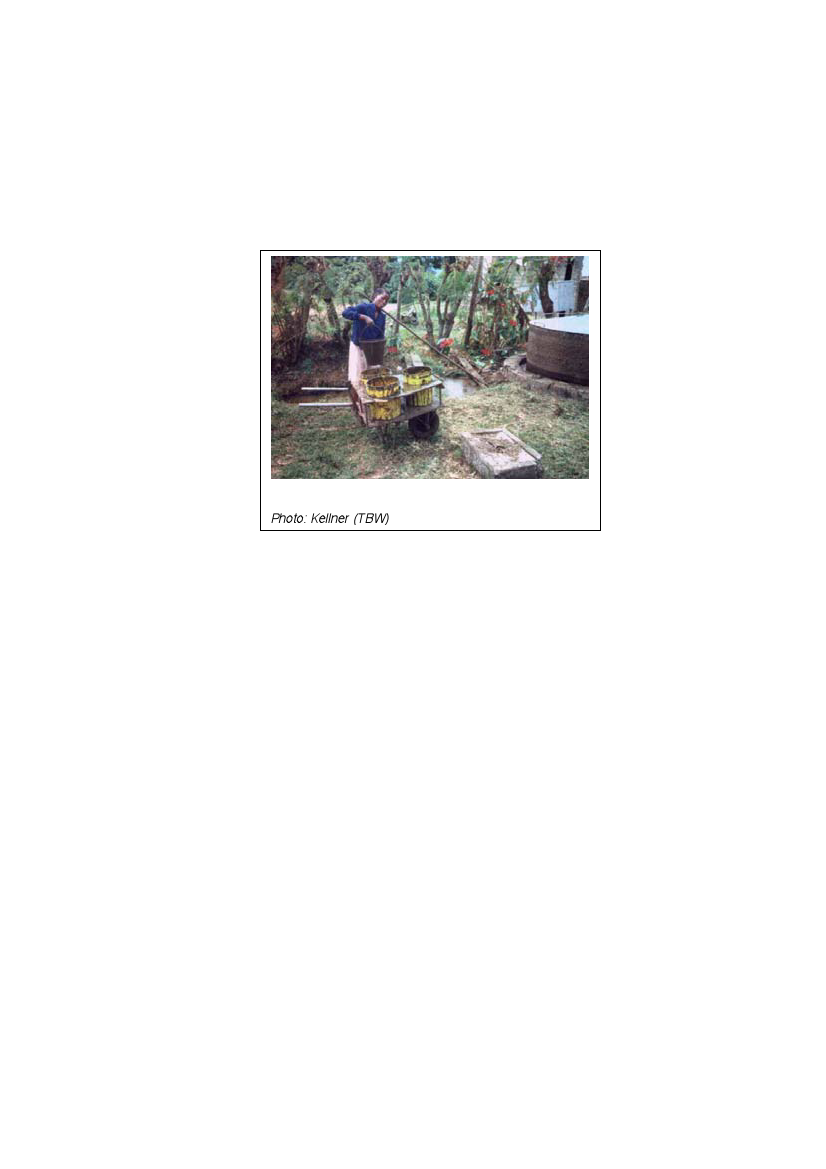
In contrast, crops such as wheat, oilseed, cotton and baccra react less favorably. Sludge is a
good fertilizer for pastures and meadows. The available data vary widely, because the
fertilizing effect is not only plant-specific, but also dependent on the climate and type of soil.
Information is still extensively lacking on the degree of reciprocity between soil fertility, type
of soil and the effect of fertilizers (particularly N-fertilizers) in arid and semi-arid climates.
Thus, no definitive information can be offered to date. Nor, for the same reason, is it possible
to offer an economic comparison of the cost of chemical fertilizers vs. biogas sludge. The
only undisputed fact that can be stated is that biogas sludge is better from an ecological point
of view.
Figure 15: Fertilisation with slurry: Transportation of
slurry by a modified wheelbarrow and buckets
Photo: Kellner (TBW)
27